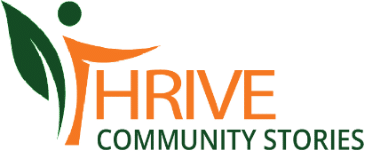(Washington, DC, February 28, 2024) As representatives and advocates for the limb loss and limb difference (LLLD) community, the Amputee Coalition issued a formal request urging the U.S. Census Bureau to reconsider its proposed transition from the current disability questions used in the American Community Survey (ACS) to the Washington Group Short Set (WGSS) of questions.
In a detailed letter addressed to the Census Bureau, the Amputee Coalition expressed concerns about the potential negative impacts of the proposed switch on the LLLD community. Cass Isidro, President and Chief Executive Officer, highlighted issues such as the lack of consideration for fluctuating mobility levels experienced by individuals with limb loss and limb difference, the dilemma surrounding the usage of durable medical equipment (DME), and the absence of meaningful community and stakeholder engagement in the decision-making process.
The WGSS, comprising six questions, aims to capture disability information in a manner reflecting advances in measurement. However, this approach may inadvertently exclude individuals using prostheses who may not indicate significant mobility difficulties at the time of the survey but could face limitations later due to various factors such as prosthesis changes or blistering.
Furthermore, the Amputee Coalition emphasized the importance of distinguishing between DME usage and non-usage in disability assessments. It recommended that the ACS explicitly inquire about both scenarios to ensure inclusivity for individuals relying on DME. The Amputee Coalition expressed deep concern about lacking community and stakeholder engagement in the decision-making process. It urged the U.S. Census Bureau to suspend its efforts to reform ACS questions temporarily. Instead, advocating for a proactive approach that involves input from a diverse range of researchers and individuals with disabilities. By fostering a collaborative and transparent dialogue, the Census Bureau can ensure that the voices of the disability community are heard. This inclusive process is crucial for establishing trust and support for the proposed modifications, ensuring they genuinely serve the interests of individuals with disabilities.
The U.S. Census Bureau provided an update on the revision process for the ACS, focusing on disability content. After thoroughly reviewing public feedback, which included 12,000 comments expressing concerns about the proposed changes, the Bureau will retain the current ACS disability questions for the 2025 collection year. Collaborating with the Office of Management and Budget (OMB), the National Center for Health Statistics (NCHS), and other statistical agencies, the Bureau will continue to work with stakeholders and the public, aiming to comprehensively address data needs related to disability across the federal statistical system. Before submitting the final proposal for the 2025 ACS content for OMB’s approval, it will offer another opportunity for the public to provide feedback.
The Amputee Coalition’s commitment to the well-being of the LLLD community drives the plea for reconsidering the transition from the ACS questions to the WGSS. Detailed analysis reveals potential negative impacts on the LLLD community, highlighting the need for a nuanced understanding of mobility variations and the essential role of DME. We urge the Census Bureau to consider the genuine concerns raised regarding the potential undercounting of this marginalized population.
###
Amputee Coalition: The Leading Voice on Limb Loss and Limb Difference
The Amputee Coalition is the only national nonprofit that serves all individuals who experience limb loss and/or limb difference. Our mission is to support, educate, and advocate for people impacted by limb loss and/or limb difference. We work to provide vital resources to people who have limb loss and/or limb difference, as well as their families and caregivers. With these resources, they can recover, readjust, and live the life they most want. Learn more at www.amputee-coalition.org.

